On November 26, 2015, at the 10th session, the 13th National Assembly passed the Law on Organization of Criminal Investigation Bodies in Vietnam, replacing the 2004 Ordinance on the Organization of Criminal Investigation (2004 Ordinance). The Law comprises 10 chapters and 73 articles and takes effect from January 1, 2018. The following are some important new points of the Law:
1. Regarding the principles of organizing criminal investigation in Vietnam
Article 3 of the Law has clearly and comprehensively stipulated the principles of organizing criminal investigation; accordingly, the organization of criminal investigation must ensure the following 04 principles: First, compliance with the Constitution and the law; Second, ensuring centralized and unified direction and command, efficiency, and effectiveness; clear and deep division and decentralization, which are closely controlled; Third, lower-level investigation agencies under the guidance and professional direction of higher-level investigative agencies; individuals responsible to their superiors and the law for their actions and decisions; Fourth, only agencies and persons authorized under this Law are permitted to conduct criminal investigation activities.
These are the guiding principles that investigative agencies and agencies assigned to conduct some investigative activities must adhere to during the course of organizing criminal investigations.
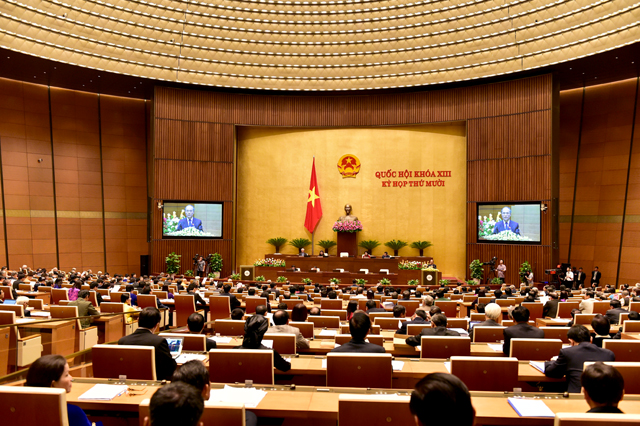
Tenth session, XIII National Assembly
2. Regarding the supervision of law compliance in investigative activities in Vietnam
To affirm the role, position, and responsibility of the Procuracy in criminal investigation (in accordance with the Law on Organization of the People's Procuracy and the amended Criminal Procedure Code), Article 11 stipulates: the Procuracy supervises the compliance of the law in investigative activities; the Investigation Agency, agencies assigned to conduct some investigative activities carry out the requirements and decisions of the Procuracy as stipulated by the Criminal Procedure Code; consider, resolve, and respond to the recommendations of the Procuracy as prescribed by law.
3. Regarding prohibited acts
Compared to the 2004 Ordinance, the Law on Organization of Criminal Investigation Agencies has added 01 new article (Article 14) stipulating prohibited acts such as: (1) Distorting case files; wrongfully convicting innocent people or overlooking criminals; unlawful interference in the investigation of criminal cases. (2) Forced confessions, using corporal punishment; violating the legitimate rights and interests of agencies, organizations, individuals. (3) Obstructing the right to defense of arrested persons, detainees, and defendants; the right to complain and denounce of others. (4) Obstructing defense lawyers and legal aid providers from performing defense and legal aid in accordance with law.
4. Regarding the organizational structure of specialized investigative agencies and agencies assigned to conduct some investigative activities in Vietnam
a) Regarding the organization of specialized investigative agencies:
The Law essentially maintains the system of specialized investigative agencies within the People's Police, the People's Army, and the Supreme People's Procuracy as in the 2004 Ordinance. However, in some systems of investigative agencies, there is a reorganization. Specifically:
- To enhance specialization in investigative activities, ensuring close coordination between investigative reconnaissance activities and procedural investigative activities, the Law stipulates the merger of the Department of Investigation of Corruption Crimes and the Department of Investigation of Economic Management Order and Position Crimes into the Department of Investigation of Corruption, Economic, and Position Crimes; Establishing a new Department of Investigation of Smuggling Crimes, Illegal Transport of Goods across Borders, Manufacture, Trade of Counterfeit Goods, Prohibited Goods, and Intellectual Property Infringement - Ministry of Public Security (abbreviated as the Department of Investigation of Smuggling Crimes); At the provincial-level Public Security Investigation Agency, establish the Division of Investigation of Smuggling Crimes, Illegal Transport of Goods across Borders, Manufacture, Trade of Counterfeit Goods, Prohibited Goods, and Intellectual Property Infringement (abbreviated as the Division of Investigation of Smuggling Crimes).
- The Law prescribes some new contents in accordance with the 2014 Law on Organization of the People's Procuracy, according to which, the Investigation Agency of the Supreme People's Procuracy includes investigation departments and supporting machines; The Investigation Agency of the Central Military Procuracy includes an investigation team and a supporting division.
b) Regarding the organization of agencies assigned to conduct some investigative activities:
The Law adds some agencies assigned to conduct some investigative activities, including the Department of Cyber Crime Prevention and Control (at the ministry level), the Division of Cyber Crime Prevention and Control (at the provincial level), and Fishery Surveillance agencies (Department of Fishery Surveillance, Regional Fishery Surveillance Branch).
To create a mechanism ensuring that crime denunciations and reports are promptly received and handled, promptly increasing the effectiveness of crime fighting and protection of legitimate rights and interests of citizens, the Law adds the Fishery Surveillance agency to one of 07 agencies assigned to conduct some investigative activities. Reducing 198 heads of agencies assigned to conduct some investigative activities in the People's Public Security forces (including 2 Departments, 126 Divisions, and 70 Detention Centers) such as: Inland Waterway Traffic Police Department, the Department of Administrative Management of Social Order, the Department of Police Protection and Judicial Support, Inland Waterway Traffic Police Division, the Division of Administrative Management of Social Order, the Division of Police Protection and Judicial Support, Detention Centers.
Border Guard agencies assigned to conduct some investigative activities include the Border Reconnaissance Department; the Department of Drug and Crime Prevention; the Special Task Force to Combat Drugs and Crime; the Provincial Border Guard Command; the Border Guard Station; Border Checkpoint Command. Thus, compared to the 2004 Ordinance, two types of agencies assigned to conduct some investigative activities are added: the Special Task Force to Combat Drugs and Crime, and the Border Checkpoint Command.
Customs agencies are maintained as organized in the 2004 Ordinance.
Forest Protection agencies assigned to conduct some investigative activities include the Department of Forest Protection; Regional Forest Protection Branch; Provincial Forest Protection Branch; Forest Protection Unit. Thus, compared to the 2004 Ordinance, the Regional Forest Protection Branch is added, and the Forest Product Authentication Unit is removed as an agency assigned to conduct some investigative activities.
The Coast Guard’s agencies assigned to conduct some investigative activities include: the Coast Guard Command; Regional Coast Guard Commands; the Operations and Legal Affairs Department; the Special Task Force for Drug Prevention; Squadron; Fleet; Task Force. Compared to the 2004 Ordinance, the names of the units and positions of the heads of the Coast Guard units have been renamed to fit the new organization of the Coast Guard force.
5. Regarding investigative authority in Vietnam
5.1. Regarding the investigative authority of the Investigation Agency in the People's Police:
To ensure compatibility with the amended Criminal Procedure Code, the Law stipulates towards increasing the investigative authority for the grassroots level, creating conditions for the central and provincial levels to perform well in guiding and directing investigative activities, consistent with the policy of decentralization to lower levels. At the same time, it supplements the authority of the Investigation Police Department of the Ministry of Public Security, specifically "Conducting investigations of criminal cases within the investigative authority of the provincial-level Investigation Police Department regarding particularly serious and complex crimes occurring in multiple provinces or centrally-run cities or transnational organized crimes, if deemed necessary to directly investigate; re-investigate particularly serious cases within the investigative authority of the Investigative Police Agency as directed by the Supreme People's Court Judge Council" (Article 19).
For the Security Investigative Agency of the Ministry of Public Security, the Law adds the authority to investigate particularly serious cases within the investigative authority of the Security Investigative Agency as directed by the Supreme People's Court Judge Council to re-investigate (Article 16); adds the authority for the provincial-level Security Investigative Agency to investigate criminal cases related to national security or to ensure objectivity as assigned by the Minister of Public Security (Article 17).
5.2. Regarding investigative authority of the Investigation Agency in the People's Army:
The Security Investigation Agency in the Army is supplemented with the authority to investigate terrorism-related crimes, terrorist financing crimes (Articles 23, 24). The Criminal Investigation Agency of the Ministry of National Defense is authorized to investigate particularly serious cases within the investigative authority of the Criminal Investigation Agency as directed by the Supreme People's Court Military Tribunal Council for re-investigation (Articles 26, 27, 28).
5.3. Regarding investigative authority of the Investigation Agency of the Supreme People's Procuracy:
The Law stipulates expanding the investigative authority of the Investigation Agency of the Supreme People's Procuracy and the Central Military Procuracy's Investigation Agency regarding new types of crimes, new crimes in the Criminal Code, and a broader range of criminal subjects, specifically:
The authority to investigate crimes of corruption and position occurring in judicial activities is expanded.
The Law adds authority to investigate criminal acts of those authorized to perform judicial activities, including: Defenders, Appraisers, Interpreters, Jailers, Investigation Officers; supplementing the authority to investigate criminal subjects within units of the Department of Cyber Crime Prevention and Control (ministry level), Division of Cyber Crime Prevention and Control (provincial level), and Fishery Surveillance agencies, and commune-level police.
It expands the investigative authority for certain crimes stipulated in Chapter 14 of the Criminal Code, such as: Crimes of Distortion of Case Files (Article 375) or Crimes of Failure to Issue Orders, Decisions to Extend Detention, Temporary Detention or Change, Cancel Detention Measures when the time limit expires, resulting in a detainee being detained beyond the limit (Article 377).
5.4. Regarding the authority and timeframe for investigation by agencies assigned to conduct some investigative activities:
The Law extends the investigation timeframe for agencies assigned to conduct some investigative activities. For less severe crimes, in case of flagrante delicto, where evidence and the criminal's background are clear, the decision to prosecute a criminal case and proceed with the investigation must be completed within 30 days, (the Ordinance stipulates only 20 days) from the date of issuing the prosecution decision, the investigation must be concluded, and the case file transferred to the competent Procuracy for resolution as prescribed by law (from Article 32 to Article 39);
5.5. Regarding the authority of commune-level police:
The Law does not stipulate commune, ward, or district-level police as agencies authorized to conduct some investigative activities. However, in practice, this force plays a crucial role in receiving and handling crime denunciations and reports, facilitating the subsequent steps in criminal investigations. Therefore, the Law has added provisions authorizing commune, ward, commune-level town, and district-level police to receive, and check initial information about crime denunciations and reports (Article 44).
6. Regarding the relationship of assignment and coordination in investigative activities in Vietnam
The Law defines the relationship between procedural investigative activities and reconnaissance activities (Article 42); the Law distinguishes between the administrative and procedural authority of the Head of the Investigation Agency in criminal investigation activities (Article 43).
For cases with indications of crime where the investigative authority is yet to be determined, the Investigation Agency that discovers it first must immediately apply investigative activities as prescribed by the Criminal Procedure Code and this law; once the investigative authority is identified, the case should be transferred to the competent Investigation Agency (Clause 4, Article 40).
7. Regarding the subjects conducting investigative activities in Vietnam
7.1. Regarding the position of Head and Deputy Head of Investigation Agency in Vietnam
The Law clearly stipulates that in addition to responsibilities in judicial proceedings, the Head and Deputy Head of the Investigation Agency also have administrative judicial duties, powers, and responsibilities, such as: directing, managing, and inspecting the implementation of tasks, work plans, and summarizing criminal investigation work; guiding, directing, and inspecting the professional investigation activities of lower-level Investigation Agencies; resolving complaints and denunciations within the competence of the Investigation Agency (Article 52).
7.2. Regarding the position of Investigation Officer in Vietnam
The Law stipulates that besides the authority and responsibilities in criminal procedures, Investigation Officers are not allowed to do things that officials, soldiers, and members of the People's Armed Forces are prohibited from doing; not allowed to take case files or documents out of the agency if not for assigned duties; not allowed to meet defendants, defendants, litigants or other participants in cases or incidents within their competence to resolve outside designated places... (Article 53, Article 54).
The Law stipulates that Investigation Officers have three ranks (Junior, Intermediate, and Senior). A new point of the Law is: stipulating a competitive exam for Investigation Officer ranks. The first term of appointment for Investigation Officers is 05 years, reappointment or promotion is 10 years (from Articles 45 to Article 51, 56, 58).
7.3. Regarding the position of Investigative Staff in Vietnam
The Law on the Organization of Criminal Investigation Agencies adds the position of Investigative Staff as those conducting procedures to comply with the Criminal Procedure Code.
For Investigative Staff in specialized investigative agencies, the Law stipulates that they must have professional expertise in criminal investigation, assisting Investigation Officers in conducting certain investigative activities (Investigative Staff of the Investigation Agency in the People's Army and People's Public Security are appointed by the Head of the Investigation Agency; Investigative Staff of the Investigation Agency of the Supreme People's Procuracy are appointed by the Procurator General).
For Investigative Staff in agencies assigned to conduct some investigative activities, they are respectively assigned by the Head of the agency assigned to conduct some investigative activities to assist the Head of the agency in verifying and investigating specific cases, detected cases (Article 59).
Nguyen Phuong Thao
Source: Central Internal Affairs Commission
 Article table of contents
Article table of contents
![[InfoGraphic] 6 forms of discipline for officials and public employees under Decree 71/2016/ND-CP](https://cdn.lawnet.vn//uploads/NewsThumbnail/2016/07/12/1319291-01.png)
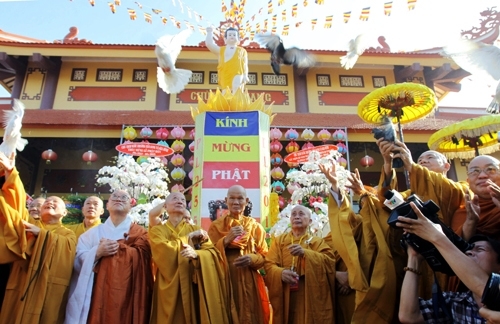
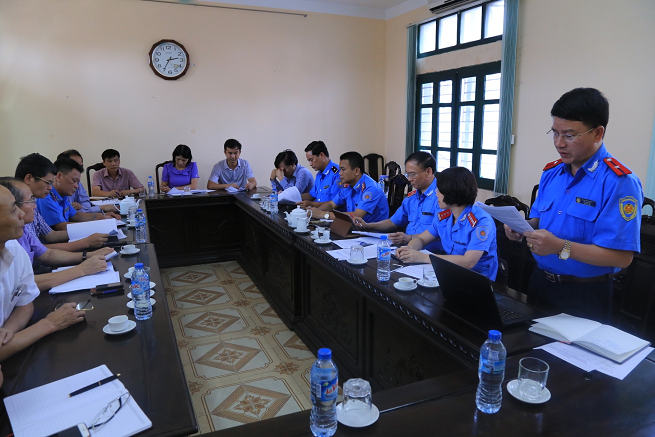
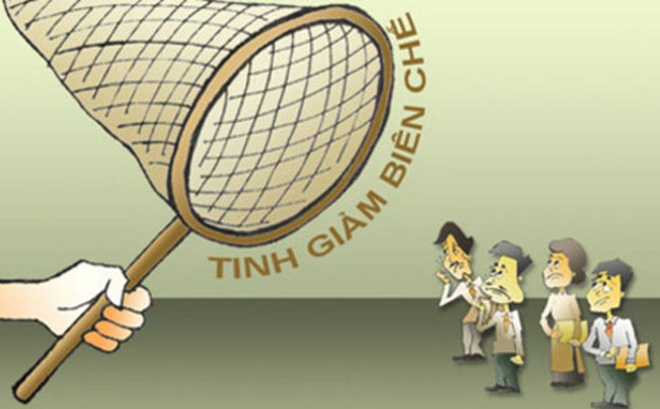
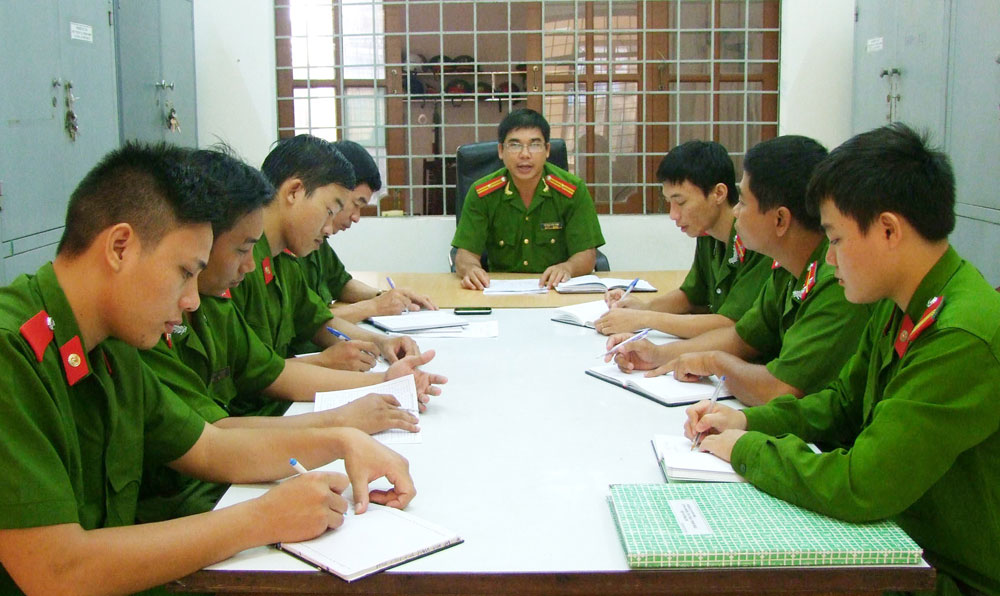
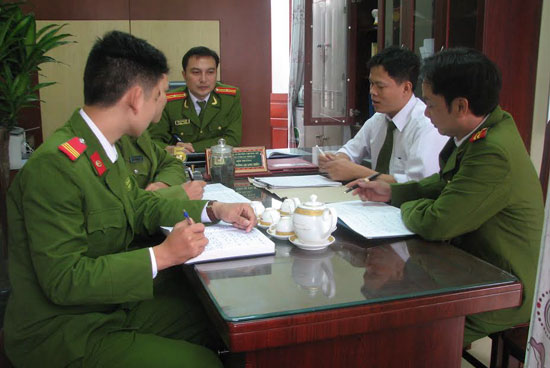
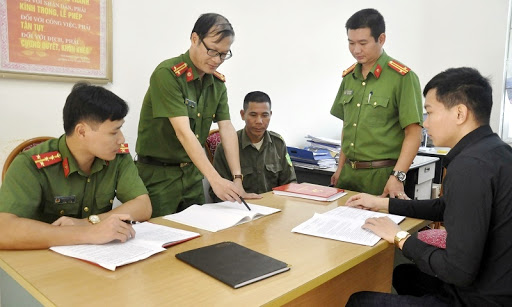
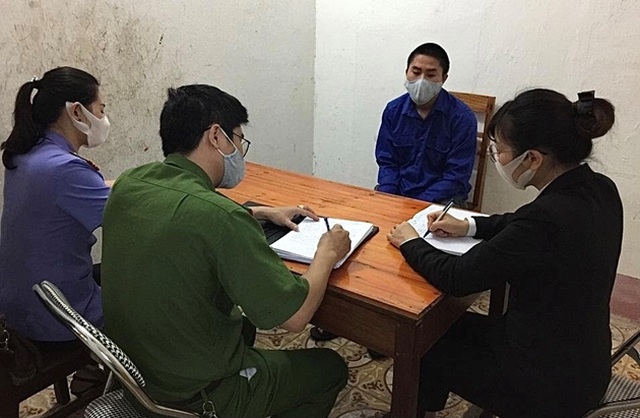
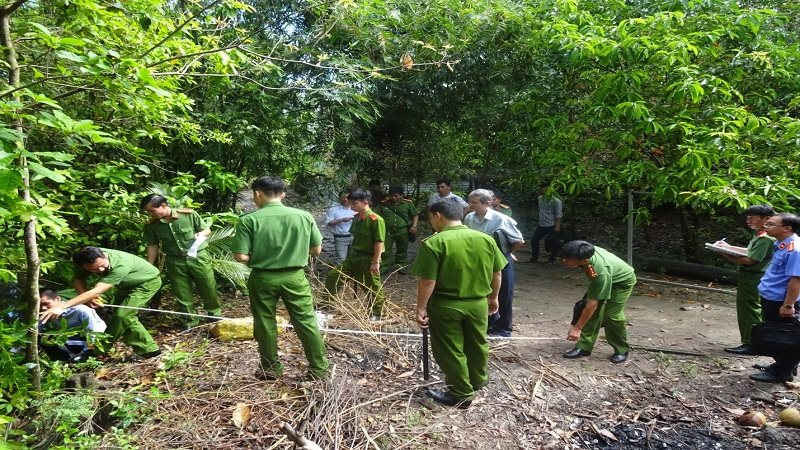

.Medium.png)
.Medium.png)
.Medium.png)
.Medium.png)
